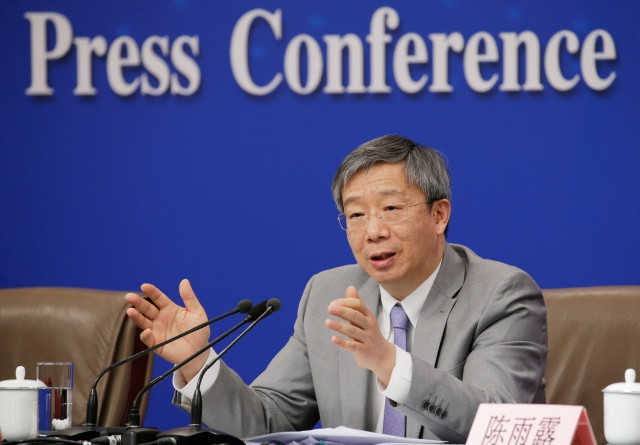In the latest round of trade talks, China and the U.S. have finally agreed on some key points including the exchange rates. As part of the agreement, the two countries stated their commitment to maintaining an open communication on exchange rate markets.
According to Xinhuanet, People's Bank of China (PBOC) Governor Yi Gang revealed on Sunday, at a press conference of the National People's Congress, that China and the U.S. have decided to comply with the previous pledges made by 20 countries during the G20 Summit, including the commitment to refrain from engaging in competitive depreciation.
The importance of transparency was also addressed and the negotiators from both agreed on making the commitment to reveal data in line with the statistics transparency standard of the IMF or International Monetary Fund.
"The two sides discussed issues surrounding the yuan including the need to abide by previous commitments made by Group of 20 nations not to engage in competitive depreciation and to communicate closely on currency issues," Bloomberg quoted Yi as saying. However, the PBOC governor did not state what other issues they had touched on and reached consensus on.
The exchange rate issue refers to currency manipulation and this was solved during the trade talks. The U.S. pushed for China to desist devaluing its currency in order to gain competitiveness or to compensate for the impact of tariffs.
The Republic of China stressed that any agreement to end the trade conflict must be fair and equal to everyone involved. PBOC governor Yi then said that China would in no way utilize the exchange rate for competitiveness or to settle any trade rows.
"The PBOC has basically exited daily intervention in the foreign exchange market, Governor Yi said. "We intend to keep the yuan basically stable at reasonable equilibrium and China will never use the exchange rate for competitive purposes, to increase exports or to solve trade disputes."
China's yuan increased by 2.3 percent this year and this stronger currency proved to be very beneficial in capital outflows. Yi said that with the constant improvement of the market economy in China, the nation's exchange rates are becoming more market-oriented as hoped.
Meanwhile, while the U.S. and China already agreed on certain points in the trade talks, the two nations have yet to discuss other aspects of the trade before they could fully end the trade conflicts. More good news is expected in the coming days as it appears that the discussions are going smoothly.





